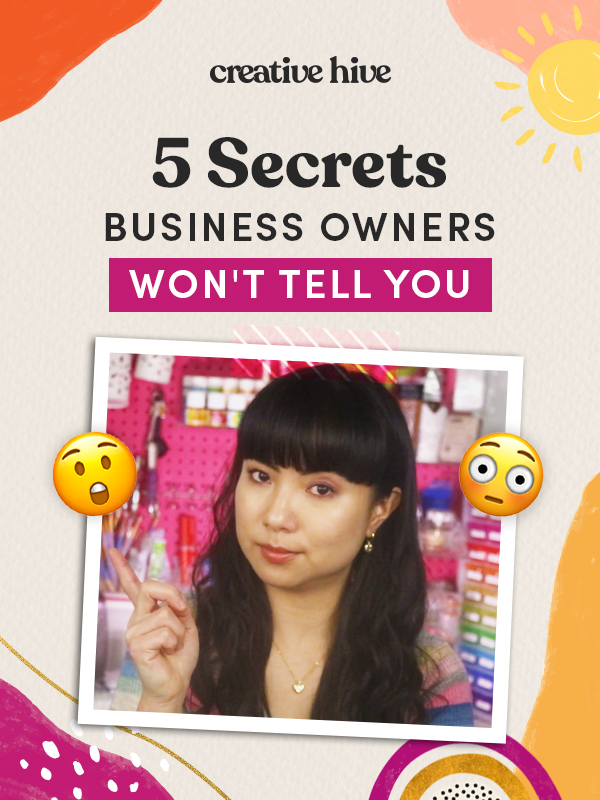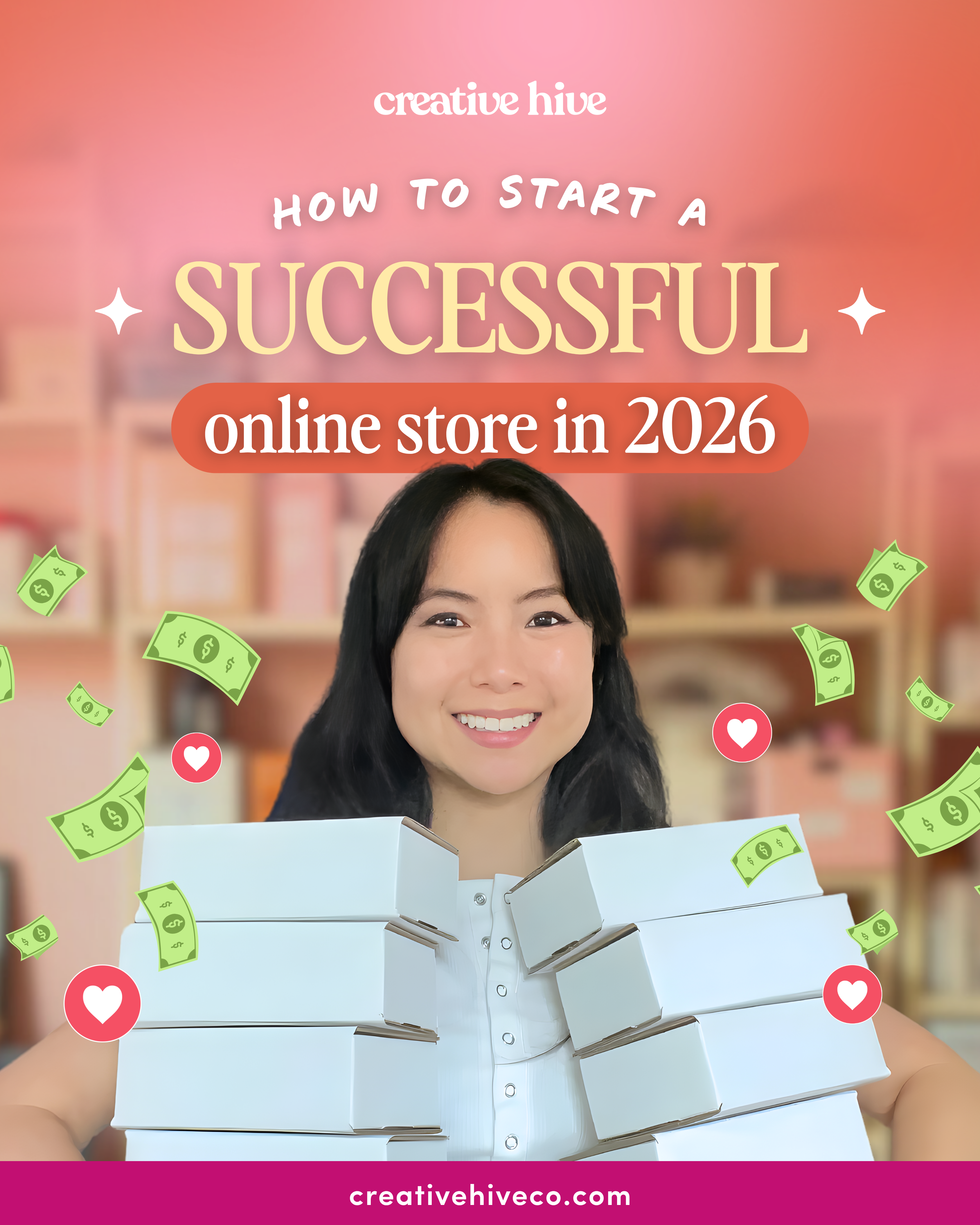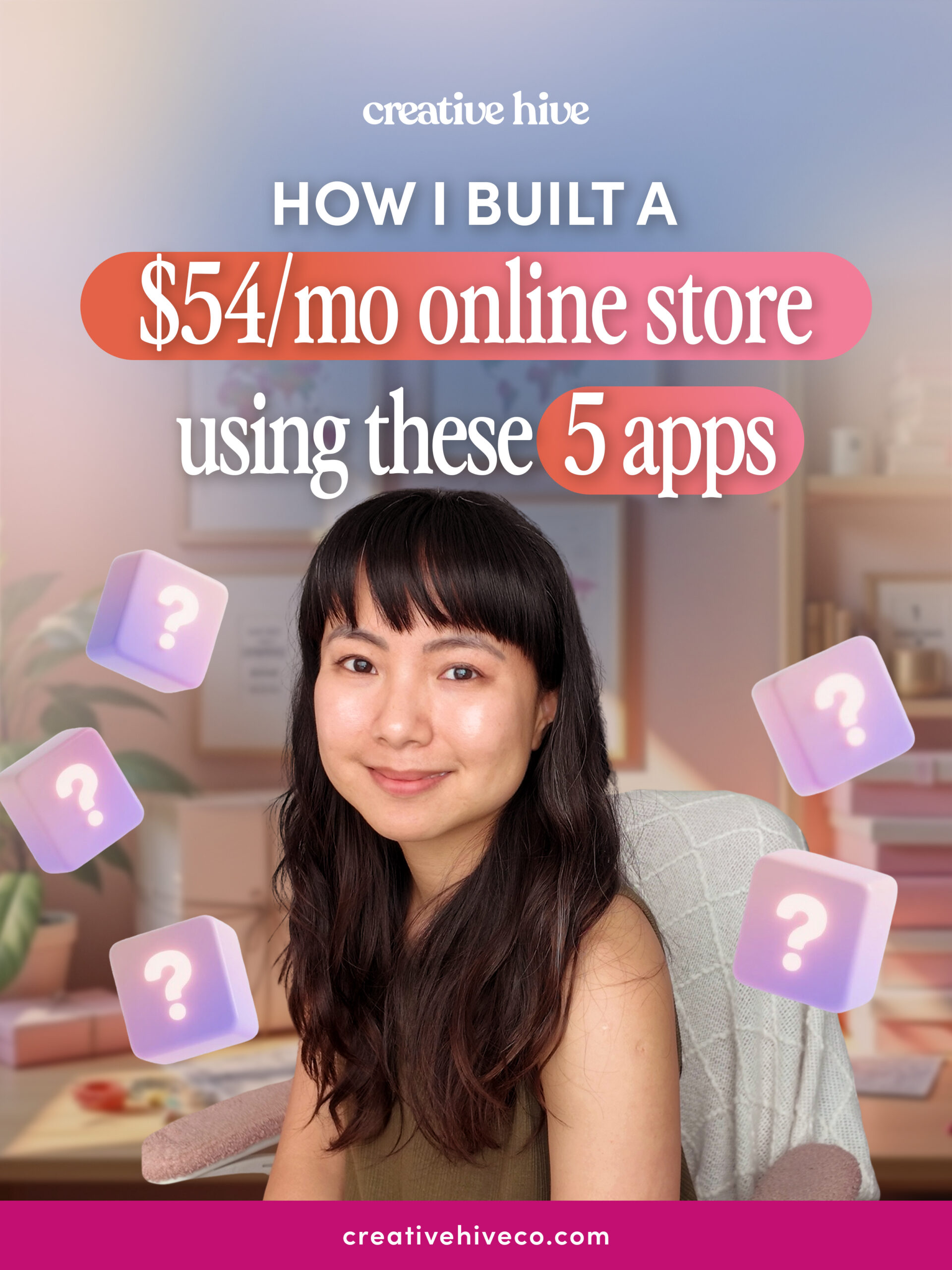I want to help you build a sustainable, profitable handmade business that makes you consistent income and sales. I only ever teach or recommend marketing, social media, pricing, production and branding tips that I’ve personally used successfully in my own 7-figure handmade businesses.
I'm Mei, from Los Angeles!
Read More
Popular Posts You'll Love
Looking for something?
Categories
starting a business
get more traffic
running a business
make more sales
branding
growing a business
mindset & productivity
podcasts
pricing & money
product photography
reviews
selling on etsy
selling on amazon
social media
selling wholesale
- Facebook0
- Twitter1
- Pinterest0
- 1share
Business owners gatekeep a lot of secrets. That’s a fact that a lot of us don’t realize.
And, sometimes, some of these secrets are quite unsavory.
In this blog post, I’m going to call out and reveal the truth behind five dirty secrets, the skeletons in the closet that business owners won’t tell you and want to keep hidden.
Why?
Because they need to maintain a certain narrative to keep people constantly buying from them… but once you find out, you might have second thoughts.
It’s time to dismantle the carefully crafted facade and give you an unfiltered look into the reality of running a business behind the scenes.
This way, you can approach it with eyes wide open, avoiding the traps of diving headfirst without a clear understanding of what you’re actually getting yourself into.
As for me, I’ve been selling products online since 2006, and I started coaching others how to do this in 2014.
I have four online businesses that I still run to this day that make me over seven figures every single year in sales, cumulatively.
I’ve been around the block for a looong time, and I’ve seen some really nasty behavior and shifts in the online space.
Unless this is your full time job like it is for me, you probably don’t even notice these things happening.
So, in this blog post, I’m going to bring them to light and reveal the truth of what’s actually going on.
Widespread copycat culture
The first thing I want to talk about is how copycat culture is getting so bad.
I mean, this was always a problem.
But it’s getting way out of hand nowadays.
The harsh secret no one wants to admit is most businesses do this, but they do it wrong.
My entire jewelry shop website has been lifted, like word for word – my about page, my homepage, was copied over to someone else’s website.
Disappointing, right?
I’ve also had people copy my products over and over again.
They’re using keywords and tags that are only relevant to my business, but using it on their listings in an effort to hijack my success and my traffic.
Plus, other coaches that I used to respect are completely using word for word the marketing messaging I use in my business.
People don’t innovate enough and I think this is rooted in the constant chasing of what works without spending time on making it their own.
Now, I am a huge proponent of doing more of what works, but don’t copy blindly without first understanding WHY it worked well in the first place.
If you don’t spend that time to analyze the why first, you are inevitably going to copy too closely, even if it was an accident and you didn’t mean to.
The problem with this is the copycatter is rarely going to see the same level of success and if they do, it’s not going to last.
It’s almost impossible to enforce protection around ideas, so many people think they can just get away with it.
But there’s a much larger and more ominous problem that this brings forth if you’re not diligent about this.
If you don’t invest the time to actually develop the skills to create amazing products and really understand how to do marketing, you’re always going to be on this copycat hamster wheel and your ideas will only ever be as good as the next person’s.
Once that idea stops working, you’re back on the ground copying someone else’s idea.
It’s all too short term thinking that’s exhausting and unsustainable.
If you stay on this path, don’t be surprised if you find yourself going back to a 9-5 job pretty soon.

Obsessing over getting followers
The second secret, which is not so much a secret because I’ve said this many times before:
People are still obsessively chasing tons of followers with too little focus on how to turn those people into sales.
I just watched a YouTuber who has amazing, AMAZING content.
Like, you could tell she’s probably spent dozens of hours on each video she puts out, all for free.
We know that a lot of people do this to stand out. It’s a common strategy, right?
Produce high-quality content to stand out, get people to subscribe and become followers, and eventually convert them into paying customers.
After watching her videos, I thought, “Wow, I’d love to buy her stuff.”
I was genuinely interested in buying her products.
So I clicked her link in her YouTube bio, but both links she had brought me to either her X or Instagram.
Which I thought was weird.
Why doesn’t her featured links direct me to her website? Doesn’t she have one?
After some digging, I finally found her website in her X bio.
To my disappointment, her product page was far from impressive.
It wasn’t even a fully constructed page, by the way.
Just imagine, it was a blank white page with just one picture with a half of a sentence, like it wasn’t even a fully finished sentence and the price.
There’s no way that gives anyone the confidence to buy.
So what’s the point of spending all those hours into making content that’s so incredible but there’s no clear path to monetizing from that?
We need to get paid for the work we do, otherwise what’s the point?
You could be the most popular influencer in the world but if you have nothing to sell, or if you don’t have a good product, you’re going to struggle to make money.
I know it’s addicting and a great dopamine boost to see your follower count growing or to see a post get more engagement than normal.
But we have to remember that likes and comments don’t pay bills.
So I really want you to question the time you spend on doing things that grow your following and even ask yourself if that really should be your goal in the first place.
Most of us are spending a disproportionate amount of time on content creation for the mere sake of getting more followers, which we know doesn’t automatically translate into sales.
It’s time to reassess our priorities and ensure that our efforts align with tangible business objectives rather than vanity metrics.
Success should be repeatable
I’m also going to call out the surge of successful shops that were born around 2020.
The time of the global pandemic and lockdown…
Everyone was forced to stay at home and lots of policies were created to help finance people’s lives.
It was interesting to see how shopping increased during this year.
This was the year that two of my businesses made it to seven figures each, so literally I made $2 million plus dollars for that year.
Whereas normally I would make $1M across all my businesses.
So basically it took a lot less for me to do well in 2020 because people were stuck at home, bored with nothing to do so they shopped a lot.
The aftermath of this surge has been intriguing to observe.
What happened from this was we have a ton of content creators who’ve come out of the woodwork talking about their success.
What I want to know is if they’re still successful today.
The reason this is so thought-provoking for me is because so many of these same creators turned to coaching and my suspicion is because their original product shops aren’t doing so well anymore.
Anyone can get lucky and be a one-hit wonder. But can you do it multiple times, again and again?
In my opinion, you don’t really get to be a coach if you don’t have a framework that’s repeatable.
And, on the surface, it seems counterintuitive – if they can’t sustain success in their own ventures, how can they guide others to do so?
If they haven’t been able to translate their knowledge and strategies into sustainable business growth for themselves, it’s really sketchy how they’re claiming that they’re the right people to teach others how to do it…
I think what happened was people got the taste of what it’s like to be self-employed, to work from home and of course once you come over to the dark side you can never go back.
But if your original business isn’t doing so well anymore, and you don’t want to go back to the workforce, you pivot and do something else.
So the trajectory I’ve seen people go in is to start selling digital products, or they become influencers or content creators on TikTok or YouTube, or they become coaches.
There’s nothing inherently wrong with this except when people use their success from 2020 as the only reference to their success and qualification to coach.

Pre-selling done wrong
Preselling as a concept is where you sell a product that doesn’t exist yet; it only exists in concept.
Lots of people who get into coaching take this preselling idea too far and they do it wrong, to the point where it damages the experience for everyone.
For example, I used to work with a coach that told me to put up the sales page for a course that I didn’t yet have for sale.
There’s nothing wrong with that, but I wanted to make it clear that the course will be delivered at a future date, that way if people bought the course, they knew when to expect the course to be delivered.
That’s something anyone would want to know, right? If I buy something, when can I expect to have it?
This particular coach advised me not to say that, I think because he believed that would lower sales conversion rates.
Instead, he told me to only mention it on the post-purchase confirmation page, and offer to give people refunds if they didn’t like that they wouldn’t actually get the course right away.
I just had a lot of beef with that idea and it breaks trust with people; that is the literal definition of clickbait.
Needless to say, I stopped working with that coach right away because our values just weren’t aligned.
Another way I see this manifesting is top coaches out there are selling courses that are just really bad.
They focus so much on sales and marketing and hyping up their program and not spending enough time on actually developing a high quality program.
This leads to disillusioned customers who feel misled and dissatisfied with their purchase.
Imagine spending $,$$$ for a course that you thought was going to help solve your problems, only to find out that it doesn’t teach you anything new or helpful at all.
You cannot believe how many times someone else’s student emails me to say they want to join my course but they’re scared to because their experience has been terrible with the course they’re already in.
And my students who started in my program first then go to their course later, come back to tell me my course is still the best.
This underscores a broader issue within the industry – how there’s a lot of scams and low-quality offerings that tarnish the reputation of genuine educators and coaches.
People in general don’t spend enough time on making a product that’s really good, whether that’s a physical product or a course or service.
But because they’re good at marketing and hyping up their own products, lots of people buy them.
But the product is bad and customers are disappointed and then that tarnishes their overall opinion of that type of product in general.
There are so many people out there that believe any product seller who has a course for sale, like me, are scams and I feel sad for how we got here.
Because it’s true; most courses out there ARE scams, and people have been scammed one too many times.
It hurts the entire industry.
When I started coaching back in 2014, I was on the other extreme end of caring way too much about the end product and the learning experience, and not enough focus on sales and marketing so I was slower to grow than my other business friends.
And frankly, I don’t regret that because I know with 1000% confidence and certainty that my course is really, really good.
I believe that when you invest in making your product so amazing, that you have just made it a hundred times easier and more likely for your customers to come back to shop from you again, and to tell their friends about you.
But if your product is crap, it doesn’t matter that you got them to buy from you once.
You’ve broken the trust with them and they’re not going to continue being a part of your business.
And THAT is not a recipe for long term success.
Going back to my previous point, so many people who had success in 2020 turn to coaching because they think it’s easy money (it’s really not!).
But 99% of them don’t care about the customer experience, or in developing a truly remarkable product or service.
So, just be careful with who you get business advice from, okay?
Choose your mentors carefully
I must be on some coaching kick right now because another thing I’ve observed is that coaches and gurus often overwhelm you with so much detailed, minutia information about how to create the perfect Instagram carousel post or reel.
Or here’s how to blow up your Youtube channel.
But it’s an insane, completely unsustainable process that’s only doable by someone who has a lot of resources like time and money to accomplish.
I suspect that people do this because they want you to think they have all the keys and secrets to success.
As they present success as a convoluted and mysterious process, they can position themselves as the only one who can solve your problems.
This trains you into thinking you need this coach, and that you need them constantly so you hire them or enroll in their program.
In my opinion, that is not what a good coach should do.
A good coach should teach you how to think independently from them, to not be reliant on them.
They should empower you to develop your own problem-solving skills and merely act as your guide, not as the sole answer to your problems.
Otherwise what have you really learned from them?
And at the end of the day, the keys to success boil down to really simple, fundamental rules of business.
That’s why I harp on the same things over and over again in my content platforms because the fundamentals never change.
But if content creators admitted that and told you that, they would run out of content to make pretty quickly once they covered the fundamentals, right?
Nevertheless, I believe that authentic coaching is about quality over quantity of the things we teach.
Rather than inundating clients with a never-ending stream of complex strategies, it’s more valuable to focus on teaching them how to apply fundamental principles effectively.
In prioritizing simplicity, transparency, and genuine value, coaches can truly make a positive impact on their clients’ lives and businesses.
Conclusion
Through this exploration of five dirty secrets, we’ve peeled back the layers to reveal the reality often hidden by the allure of success.
Hopefully, this blog post has helped you approach the idea of running your own handmade business with eyes wide open, so you can navigate its daily challenges with greater clarity and intentionality.
Share your thoughts in the comments below!

Leave a Comment
Liked this article? Share it!
Unlock a Profitable Handmade Business
in Just 12 Weeks Without Using Etsy
or Social Media
FREE WORKSHOP
This workshop is for anyone who makes and sells a handmade or physical product, including jewelry designers, artists, paper designers, bath & body product makers and more!
What You'll Discover
The #1 mistake people make with Etsy & social media that causes shops to FLOP
The secret to making it with your handmade shop so it's no longer just a hobby
How to make sales in your handmade shop with ease so you can finally get to 6-figures
TAKE ME THERE
Your email address will not be published. Required fields are marked *
Leave a Reply Cancel reply
About
Blog
A Sale A Day
Student Login
Free Class
Contact
Terms
Become A Student
Watch On YouTube
Student Reviews
See My Handmade Shop!



Your article helped me discover many manipulation tricks of salespeople. I found it quite true to the psychology of buyers and fortunately I knew these things earlier.
Your series is really a great Scratch Games Online experience. Studying the diverse topics is really enjoyable to gain new knowledge.
Thanks for sharing, I will take note of the things you share, to avoid. Useful post for me! basketball stars